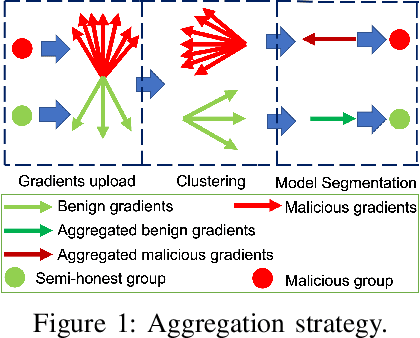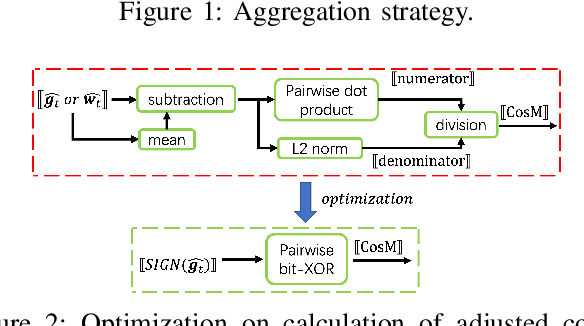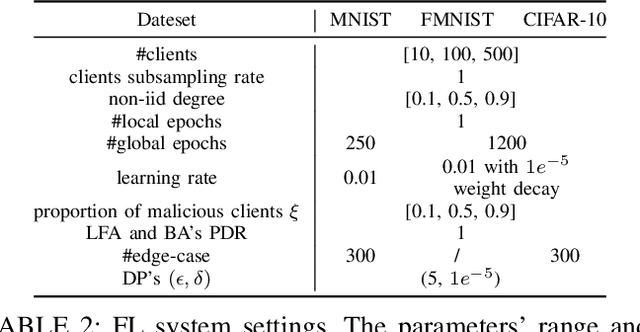BRIEF but Powerful: Byzantine-Robust and Privacy-Preserving Federated Learning via Model Segmentation and Secure clustering
Paper and Code
Aug 22, 2022



Byzantine-robust Federated Learning (FL) aims to counter malicious clients and to train an accurate global model while maintaining an extremely low attack success rate. Most of the existing systems, however, are only robust in honest/semi-honest majority settings. FLTrust (NDSS '21) extends the context to the malicious majority for clients but with a strong restriction that the server should be provided with an auxiliary dataset before training in order to filter malicious inputs. Private FLAME/FLGUARD (USENIX '22) gives a solution to guarantee both robustness and updates confidentiality in the semi-honest majority context. It is so far impossible to balance the trade-off among malicious context, robustness, and updates confidentiality. To tackle this problem, we propose a novel Byzantine-robust and privacy-preserving FL system, called BRIEF, to capture malicious minority and majority for server and client sides. Specifically, based on the DBSCAN algorithm, we design a new method for clustering via pairwise adjusted cosine similarity to boost the accuracy of the clustering results. To thwart attacks of malicious majority, we develop an algorithm called Model Segmentation, where local updates in the same cluster are aggregated together, and the aggregations are sent back to corresponding clients correctly. We also leverage multiple cryptographic tools to conduct clustering tasks without sacrificing training correctness and updates confidentiality. We present detailed security proof and empirical evaluation along with convergence analysis for BRIEF. The experimental results demonstrate that the testing accuracy of BRIEF is practically close to the FL baseline (0.8% gap on average). At the same time, the attack success rate is around 0%-5%. We further optimize our design so that the communication overhead and runtime can be decreased by {67%-89.17% and 66.05%-68.75%}, respectively.
 Add to Chrome
Add to Chrome Add to Firefox
Add to Firefox Add to Edge
Add to Edge